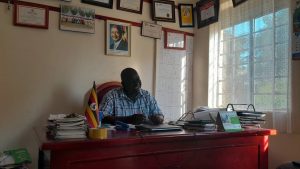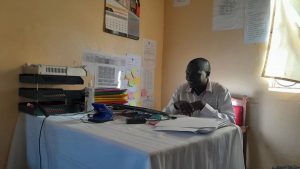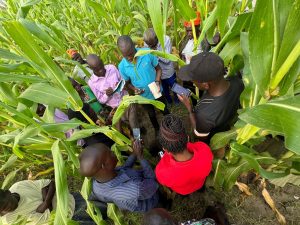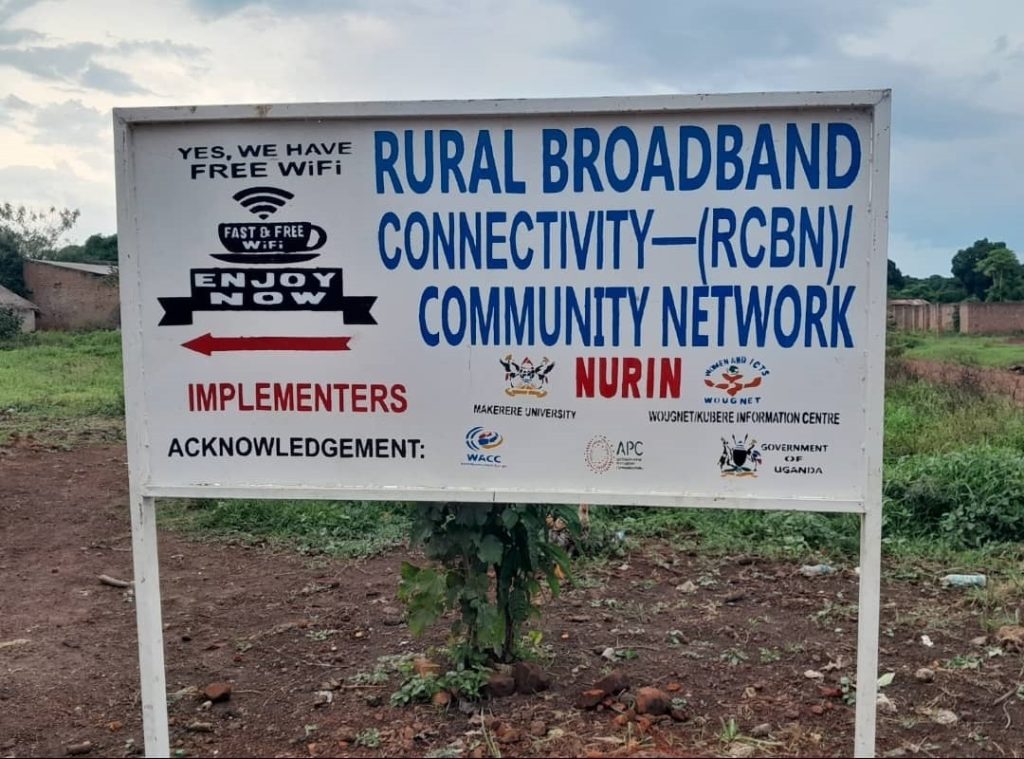
The Headteacher maruzi Seed SS Donald Oyera Aquilla
The Rural Community Broadband Network (RCBN) connection installations have sparked a wave of transformation in educational institutions across Apac district in Lango sub region. With active community participation and a growing community uptake, the benefits are evident in both academic performance and operational efficiency.
At Maruzi Seed Secondary School, the headteacher, Donald Oyera Aquilla, has praised the profound changes the RCBN connection has brought to the school. “Teachers and staff can now engage in virtual platforms like Zoom, enabling seamless participation in professional development sessions and meetings, enhanced research opportunities for candidates due to the availability of reliable internet, the financial burden of data purchases, once a significant expense, has been suggestively reduced. These savings have been redirected toward other critical needs, enhancing the school’s overall functionality”, said Oyera.
He however said the school has extended the benefits of its connectivity to the broader community. During school holidays, the institution runs basic computer training programs, equipping community members with essential digital skills. This initiative not only bridges the digital literacy gap but also strengthens the bond between the school and the community it serves.
Similarly, St. Albert Technical Institute has experienced remarkable advancements, thanks to the RCBN connection according to the institution principal Mr. Ben Bonny Odwonga.

The principal St Albert Technical institute Mr. Ben Bonny Odwonga.
Odwonga highlighted how the improved internet access has enhanced communication and drastically reduced data expenditure. “Beyond cost savings, the internet has become an indispensable tool for research and innovation”, Odwonga said.
He however attributes their recent success in the Hands-On Skills Competition for vocational schools in the Lango sub-region as a testament to the power of the RCBN connectivity. Competing against over 65 schools from five districts, St. Albert emerged as the winner, showcasing their students’ exceptional skills and dedication. This achievement has not only elevated the institute’s reputation but also demonstrated the potential of internet-enabled research and learning in empowering students.
Beyond education, NURIN and Netlabs!UG, under the Enhancing the Reliability and Adoption of the RCBN project with support from Internet Society, have expanded technological interventions to agriculture. At Bedigen, Awiri, Apac Municipality, the deployment of the LoRaWAN network and sensor nodes has proven to revolutionize farming practices. Farmers have been introduced to Internet of Things (IoT) handheld devices and trained on their usage, empowering them to harness data-driven insights.

farmers recieving training
This initiative has been warmly embraced by the farming community. With real-time data from the sensor nodes, farmers can now determine optimal planting seasons and crop types, enabling them to improve yields and enhance food security.
These interconnected initiatives demonstrate how technological advancements, championed by RCBN, NURIN, and Netlabs!UG, are bridging digital divides and empowering communities. From education to agriculture, these innovations are not just improving outcomes but also fostering sustainable growth, laying the foundation for a brighter and more connected future in Lango.



